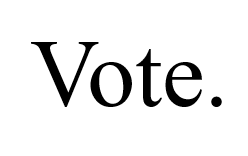Disclaimer: The views expressed within this article are entirely the author’s own and are not attributable to Wessex Scene as a whole.
France’s resort city of Cannes has undoubtedly given us a glimpse into the ‘post-lockdown’ world, after the southern city started trialling the use of monitoring software as part of its digital surveillance network in outdoor markets and on public buses on May 4th.
While there are currently no plans for monitoring software to be introduced nationwide it is only a matter of time before it is rolled out to France, Europe and the world. While far from a surveillance state enthusiast, evidence universally suggests the introduction of monitoring software is one of the best and only ways to mitigate the Coronavirus menace while the struggle for a vaccine continues. Particularly considering health experts are yet to conclude whether or not immunity from COVID-19 can be attained. This lack of conclusive evidence means that the only logical and tangible way to restart society worldwide is to ensure social distancing is universally maintained by as many people as possible. This reduced human contact being the only way to ensure the avoidance of a second spike of infection after lockdown guidelines are universally eased. The national adherence to social distancing is also vital being the only way to ensure furloughed UK workers and national productivity can return to its prior levels, with an economic catastrophe akin to the financial crashes of 2008 and 1929 being largely avoided.
The UK Government has detailed plans to ensure social-distancing can be easily maintained at work, via the universal construction of plastic screens, distribution of personal protective equipment (PPE) and rearranging workspaces. Private-sector travel providers also plan to reduce individual vehicle capacity and temporarily ditch the middle seat. The lack of total national compliance with the Lockdown guidance announced by the UK Government on March 23rd is demonstrated by statistics from the Department of Transport and Google Data. These show trips in motor-vehicles and to parks are creeping up in the UK this month. Thus indicating that the UK population will not completely comply with the Government’s ‘new normal’ if left to their own devices. This is inevitable due to the un-compliant minority accompanied by many of us who will naturally and subconsciously fall back into our ‘old habits’ when some form of normality resumes.
Due to this societal transition, the UK’s current digital surveillance system will and must be enhanced and expanded with monitoring software. This will ensure near overall compliance to ‘social-distancing’ continues for the foreseeable future. While surveillance of the population cannot be extended to every corner of the country, the UK already has the infrastructure to enact more-advanced monitoring software in the most densely populated areas. There are 6 million CCTV cameras in the entire country and 600,000 in the City of London alone. The combination of this advanced technological infrastructure and near-universal public support for social-distancing means advanced surveillance with the power to recognise and discipline wrongdoers could be ready to operate in a matter of weeks. It’s unclear what the UK Government would do to enforce national adherence. Punishment could range from the continued threat of monetary fines for blatant violation of the rules that can easily be supported by CCTV footage or simply the public’s knowledge they are being watched.
In spite of whatever deterrent is enacted, there is little doubt this surveillance network must replicate the ‘Cannes-model’ in its purest form. This means that no images obtained by the technology should be sorted or transmitted for any duration of time. The EU data privacy law and The UK Data Protection Act 2018 legally forbids such actions. Thus the UK and European Union countries are safe in the knowledge that this new inevitably surveillance-heavy era will not infringe their personal data privacy, enshrined by law. Its introduction in countries like the US, China, Russia, India and Brazil will undoubtedly worry its citizens that these new powers may be abused by those in charge. Considering their respective national laws provides no protection to individual’s data privacy.
Contact tracing
South Korea has been widely applauded for its successful and comprehensive reaction to COVID-19 which has seen it record only 254 deaths and 9,238 recoveries from the 10,804 confirmed cases. The nation’s ability to emphatically halt spread the spread of coronavirus is partly thanks to the widespread introduction of testing kits and healthcare facilities being structured to facilitate patient isolation after the SARS outbreak in 2002-2004 and the MERS outbreak in 2015. South Korea’s dramatic fall in recorded ‘new cases’ of 931 in ten days, from 1,062 on March 1st, to 131 on March 9th is largely thanks to the nationwide introduction of ‘contact-tracing’. This is where the Government electronically monitors infected citizens’ movements. Health officials are alerted of new infections and the person/people in question are tested and isolated. This highly successful and bullet-proof strategy also urges other citizens to stay away from infected ‘trial’ via an automated text-message being sent when anybody is in close proximity to these areas. This has seen South-Koreans avoid a ‘European-style’ lockdown and enjoy a swift resumption to normal life. This has come at a severe cost for citizens’ privacy after the South-Korean Government changed the law so they could legally record and log all of their citizens’ movements. This was enacted via the Infectious Disease Control and Prevention Act. This granted the police, health officials and other supervising authorities with the legal authority to use personnel’s mobile-phone G.P.S. data, credit card payment information, as well as personnel travel and medical records. This meaning in the most basic terms the National Government had comprehensive and updated access to the whereabouts of all its citizens at all times.
The NHS started to trial their own ‘contract-tracking’ app in the Isle of Wight on May 5th. Although, this app is technically different from South-Korea’s considering this app requires Bluetooth technology to be ‘turned on’ and people to ‘opt-in’ via independently inputting their health records. This app is nevertheless a form of contract-tracking that shares personal medical records to other phones it has been in close proximity with, albeit anonymously. This has correspondingly resulted in Dr Montjoye, head of the Computational Privacy Group at Imperial College London, raising concerns the app would ‘collect sensitive information like location data’.
News of this hi-tech system undoubtedly strikes Orwellian-like fears that the adoption of ‘contact tracing’ in the UK would mean ‘Big Brother is watching you’, even here at home. It undoubtedly gives national governments powers over its citizens. This trade-off has nevertheless floorlessly mitigated COVID-19 in South-Korea and Singapore. UK, US and EU law additionally rigorously protect personal rights to free speech and a fair trial meaning their citizens cannot legally be imprisoned solely from evidence contracted from any electronic or digital surveillance technology.




